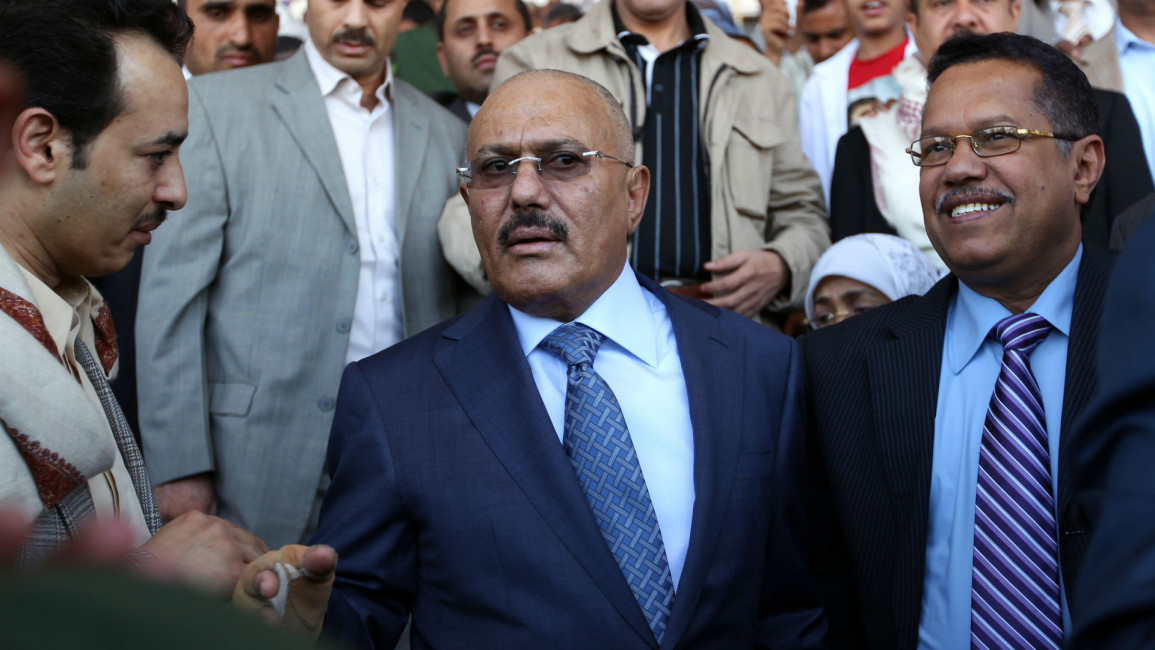Yemen's Saleh asks UN for permission to visit Cuba
Deposed Yemeni President Ali Abdullah Saleh has requested permission from the UN to travel to Cuba to pay respects to the late Cuban leader Fidel Castro, a statement from his party said.
Saleh, a key ally of Yemen's Houthi rebels in the country's ongoing civil war, has been subject to travel sanctions by the UN since 2014 for threatening peace and obstructing Yemen's political process.
"President Ali Abdullah Saleh... has requested the United Nations Security Council to grant him permission to travel to the Republic of Cuba," a statement on the Facebook page of Saleh's General People's Congress party said.
"And to [visit] Fidel Castro's family on the passing of the great revolutionary icon of Cuba, the last of the twentieth century's heroes and the pioneer of the liberation movements who fought against imperialism and retrograde feudalism."
It is not clear whether the proposed trip will require the former leader to return to Yemen, or if it will be used as part of neogtiations to end the country's conflict.
The request will have to be approved by consensus by the 15-member Security Council's Yemen sanctions committee, including Saudi Arabia's key Western allies the US and UK.
 |
|
| Saleh and Castro met in Havana in 2000 [AFP] |
Saleh, who was overthrown from power in 2011, met Castro during a state visit to Havana in 2000.
The last time the toppled Yemeni leader is known to have left his home country was in 2011, when he flew to the United States to receive medical treatment for injuries sustained from an assassination attempt.
At present, Saleh and his Iran-back Houthi allies are locked in a bloody conflict with a Saudi-led coalition that is attempting to restore the government of President Abedrabbo Mansour Hadi.
Saudi Arabia led an intervention force in March 2015 and air raids and a limited ground war has continued without conclusive results, despite drawing international condemnation, and accusations of war crimes.
On the weekend, the UN's envoy for Yemen announced a new bid for peace talks between the government and rebels, after the latest ceasefire failed to end the 20-month conflict.
The peace efforts led by UN envoy Ismail Ould Cheikh Ahmed came as dozens were killed in continued fighting.



